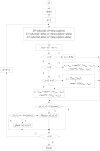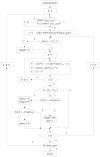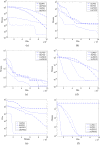Lagrange Interpolation Learning Particle Swarm Optimization
- PMID: 27123982
- PMCID: PMC4849747
- DOI: 10.1371/journal.pone.0154191
Lagrange Interpolation Learning Particle Swarm Optimization
Abstract
In recent years, comprehensive learning particle swarm optimization (CLPSO) has attracted the attention of many scholars for using in solving multimodal problems, as it is excellent in preserving the particles' diversity and thus preventing premature convergence. However, CLPSO exhibits low solution accuracy. Aiming to address this issue, we proposed a novel algorithm called LILPSO. First, this algorithm introduced a Lagrange interpolation method to perform a local search for the global best point (gbest). Second, to gain a better exemplar, one gbest, another two particle's historical best points (pbest) are chosen to perform Lagrange interpolation, then to gain a new exemplar, which replaces the CLPSO's comparison method. The numerical experiments conducted on various functions demonstrate the superiority of this algorithm, and the two methods are proven to be efficient for accelerating the convergence without leading the particle to premature convergence.
Conflict of interest statement
Figures





References
-
- Kennedy J., Eberhart R.C. Particle swarm optimization. in Proceedings of IEEE International Conference on Neural Networks, Piscataway, NJ, 1995; pp. 1942–1948.
-
- Haddow BPC, Tufte G, editors. Goldberg D.E. Genetic Algorithms in Search, Optimization and Machine Learning Addison-Wesley Longman Publishing Co; In Proceedings of the 2000 Congress on Evolutionary Computation CEC00; 2010.
-
- Shi Y, Eberhart R C. A modified particle swarm optimizer. IEEE International Conference on Evolutionary Computation. Proceedings of the Piscataway, 1998; 1998b pp. 6973.
-
- By Y, Eberhart R, editors. 1998). “ Parameter selection in particle swarm optimization. Proceedings of the 7th Annual Conference on Evolutionary Programming; 2010.
MeSH terms
LinkOut - more resources
Full Text Sources
Other Literature Sources

